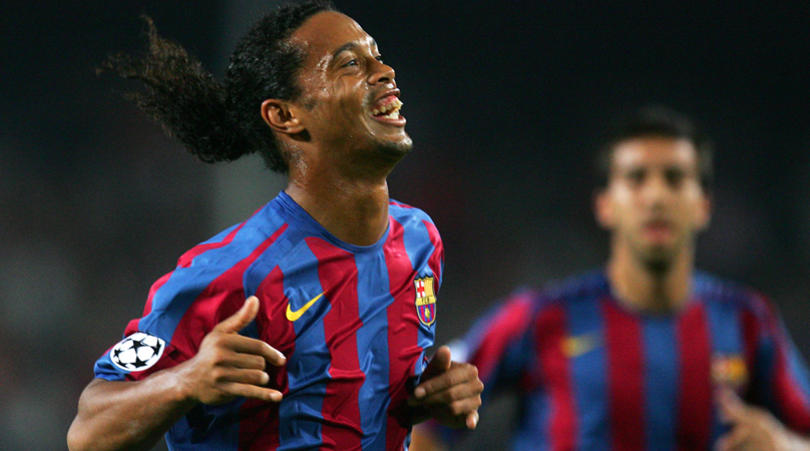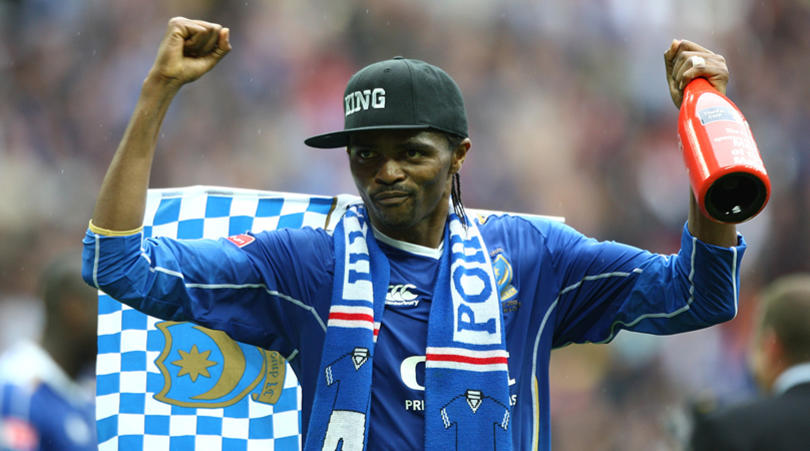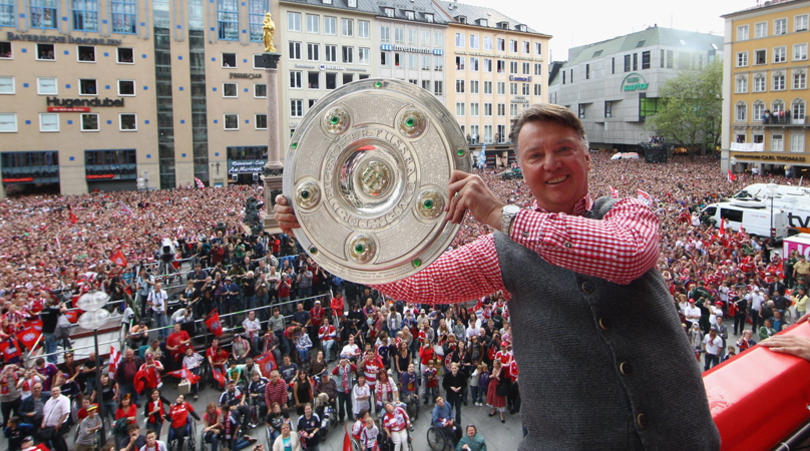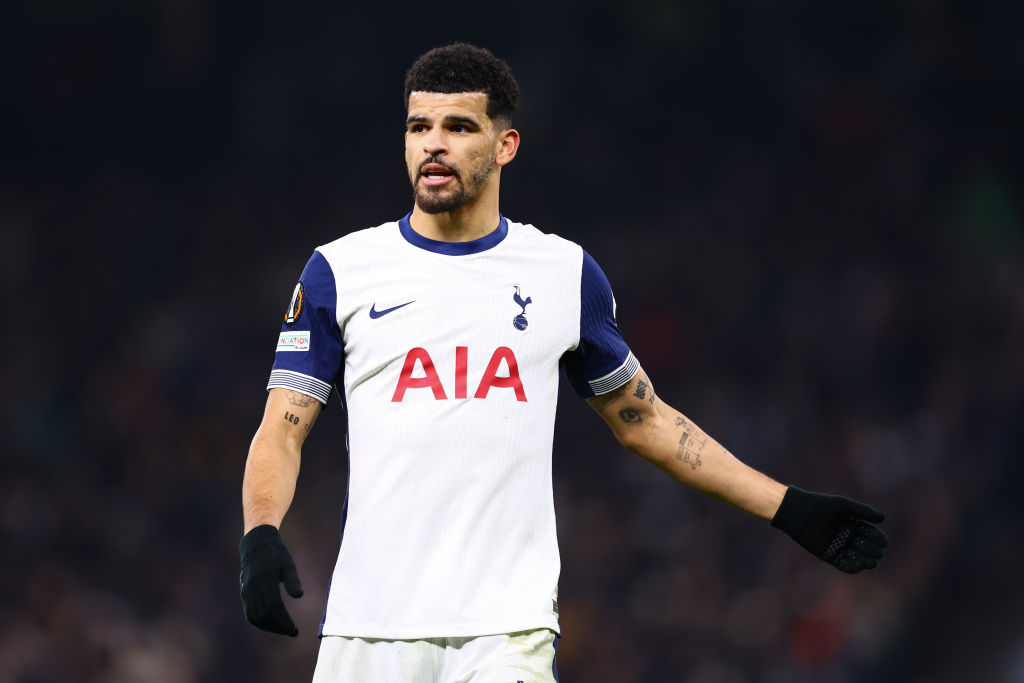10 players we wished had played in the Premier League (but didn't)
They teased us from afar, but could never quite be captured by Premier League clubs. Seb Stafford-Bloor recalls a clutch of stars who regrettably never made it to England
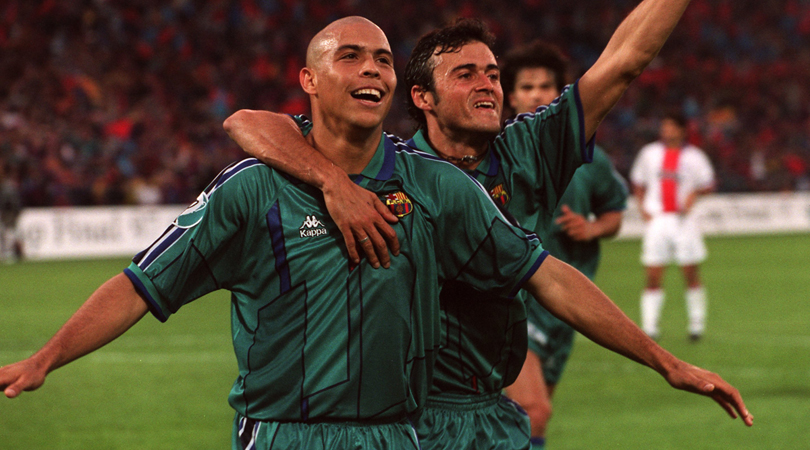
1. Oliver Kahn
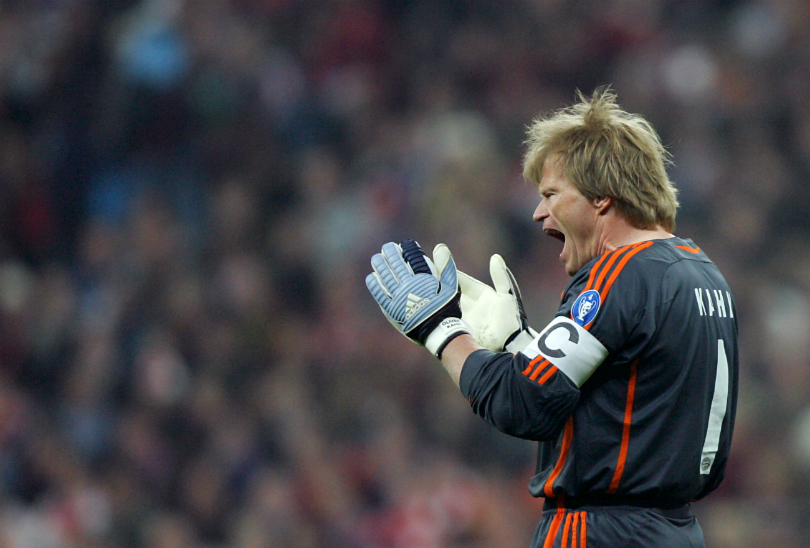
Kahn's three most high-profile encounters with English sides (Euro 2000, 1999 Champions League Final, and Germany's 5-1 defeat in 2001) all ended in failure. Personally as well as collectively, too, because he was oddly off-colour in all three games.
However, has there been a European goalkeeper more suited to the Premier League in the last 20 years? Imposing, barrel-chested and a lover of the limelight; not only would he have suited – and thrived within – the sporting landscape, he would likely also have taken naturally to the burgeoning celebrity culture. Goalkeepers are prone to bending under the weight of scrutiny, but Kahn invited it. Actually, he craved that attention and fed off it; it may be a dislikeable trait, but it was a precious attribute in a big club keeper.
It would take a long search to find three better penalty saves than the ones he made in the 2001 Champions League Final shootout, and he was typically a superb shot-stopper, but it was that aloof aura that was so fascinating. He seemed invulnerable to any situation, and that would have been fascinating to watch first hand.
2. Ronaldinho
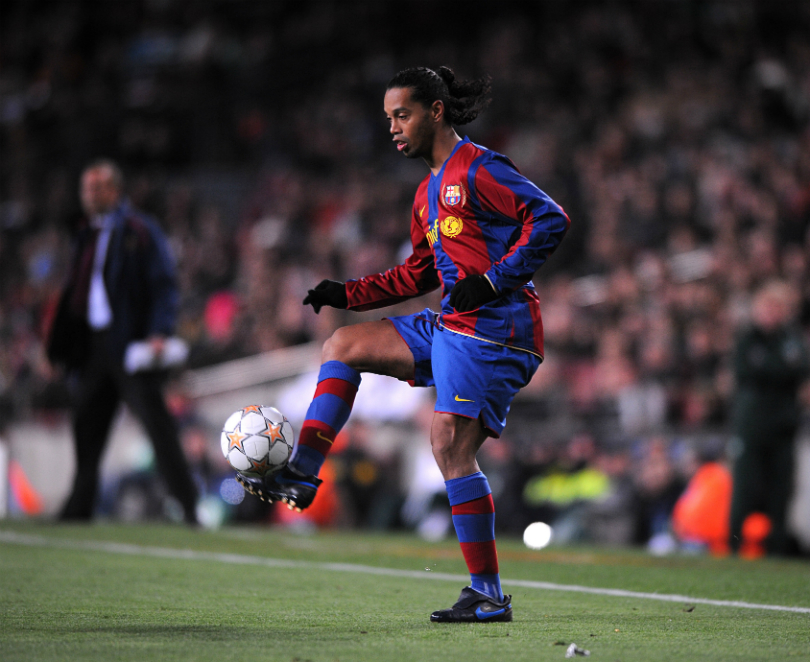
It nearly happened: Manchester United tried to sign him from PSG before, later in his career as told to FourFourTwo, Chelsea also attempted to bring him to the Premier League.
By the time Ronaldinho's career peaked, Spanish football had become so visible in England that it didn't really matter that he never made it. He was the quintessential big game player and so his best moments typically occurred on the biggest stages: the whole world was watching when he shimmied across Milan's box and leathered the ball into Dida's top corner and, likewise, the games he routinely lit up were beamed live to hundreds of different countries.
Get FourFourTwo Newsletter
The best features, fun and footballing quizzes, straight to your inbox every week.
We all saw the flicks, the tricks, and that infectious smile for ourselves. His 2005 performance in the Santiago Bernabeu for instance, which saw him applauded off the field by home supporters, was so ubiquitously shown as to have happened in Britain anyway.
So the intrigue lies in how he might have adjusted to the Premier League. He would almost certainly have been brilliant, but at what cost? Would his winking cheek have survived the experience or, over time, would his appetite for the game have been eroded by the physical attention he would almost certainly have received?
3. Stefan Effenberg
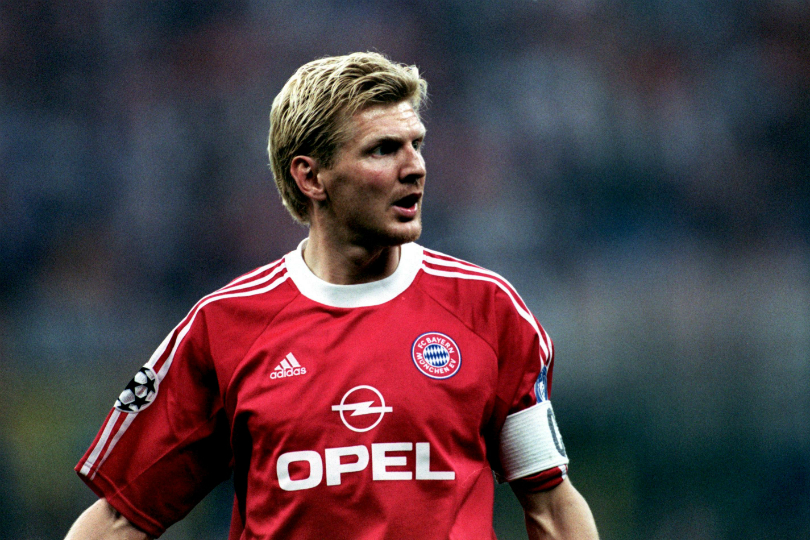
As a pure footballer, Effenberg was glorious. Equipped with a passing range to die for, he recognised attacking opportunity quicker than anybody on the pitch and moved the ball with such elaborate class. He didn't age particularly well and, as time wore on, sightings of him bursting forward with that leggy stride grew few and far between. But a young Effenberg playing in the mid-1990s Premier League? Take all the best elements of Paul Scholes, Steven Gerrard, and David Beckham and that, perhaps, is what it might have looked like.
"He recognised attacking opportunity quicker than anybody on the pitch and moved the ball with such elaborate class."
He was also about as close to the denigrating British stereotype of a German footballer as it was possible to get. Arrogant, aloof and – irritatingly – really, really good. Imagine the back-and-forward between him, the crowds, and the tabloid press. It's maybe a response to the sterile nature of the modern game, but in retrospect Effenberg might have been a breath of fresh air.
This was a player sent home from the 1994 World Cup for aiming a middle-finger at his own supporters, who dedicated a chapter of his autobiography to belittling Lothar Mathaus's knowledge of the game (by leaving it blank), and who, in a Playboy interview, claimed that unemployed people "don't have any desire to get up early each morning and go to work".
4. Christian Vieri
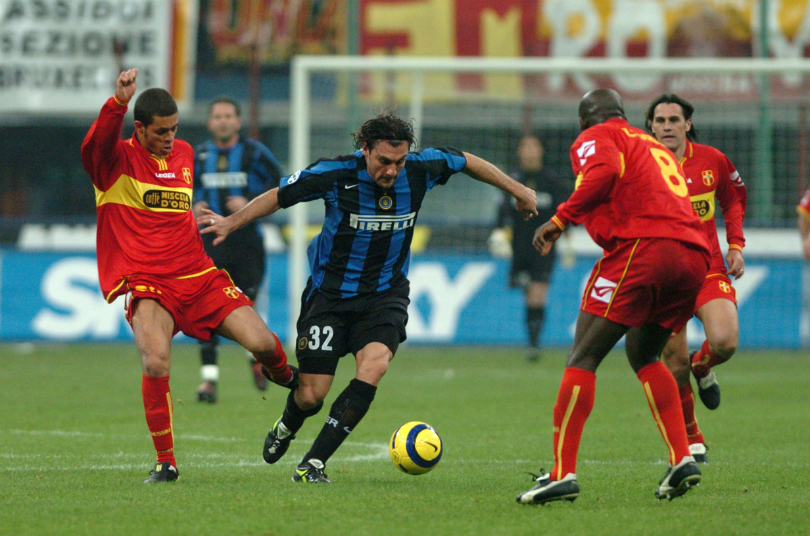
A regular debate in English football concerns Andy Carroll, and what he might have been able to achieve had he not been quite so fragile. If he stayed clear of injury, what would all of his power, aerial ability and finish technique have allowed him to become? The answer is probably Christian Vieri.
The Italian was polarising in this country for a long time, probably because he was prone to looking quite clumsy. He wasn't, but his big body and slightly ungainly running style gave that impression.
As well as he may have used those physical gifts, he wasn't entirely reliant upon them and, actually, a lot of his goals (particularly during his post-Millennium peak at Inter) involved deft touches, craft and imagination. He could probably have been described as both an old-fashioned targetman and as an ultra-modern complete forward; the chances are that a 28-year-old Vieri would have been highly effective in any era – and particularly so in British football.
Consider also the centre-backs who guarded in the Premier League back then: Sol Campbell, Jaap Stam and, later, John Terry, Rio Ferdinand and Sami Hyppia. Vieri was mightily successful in Italy and Spain, so to have watched him duel with England's finest would have been enthralling.
5. Ronaldo
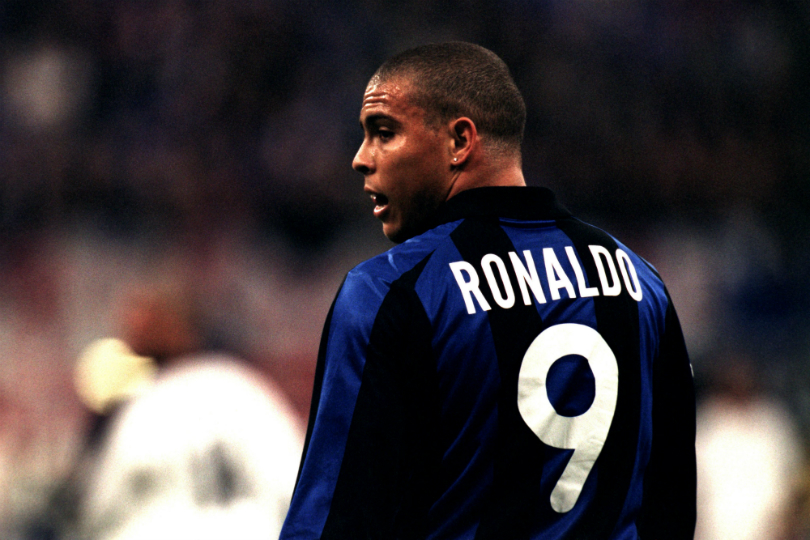
How could you not?
It's impossible to make any original observations about Ronaldo, because he spent his career being lathered with superlatives and the case for wanting to have watched him more closely is obvious. For as a long as the game is played, there will be a fascination with extreme physical attributes and, with the possible exception of George Weah, nobody has blended pace and power with Ronaldo's level of technical ability in quite such an overwhelming way.
He was a force of nature and, while the clips of such moment perhaps haven't aged quite as well as anticipated, there were times – especially during his Barcelona years – when Ronaldo seemed to be playing the game in a way which had never been seen before.
Alan Shearer, Thierry Henry, Ruud van Nistelrooy... no Premier League forward has ever compared to him. What could he have done to English football? The answer, most likely, is that he would have burned it to the ground.
6. Dejan Savićević
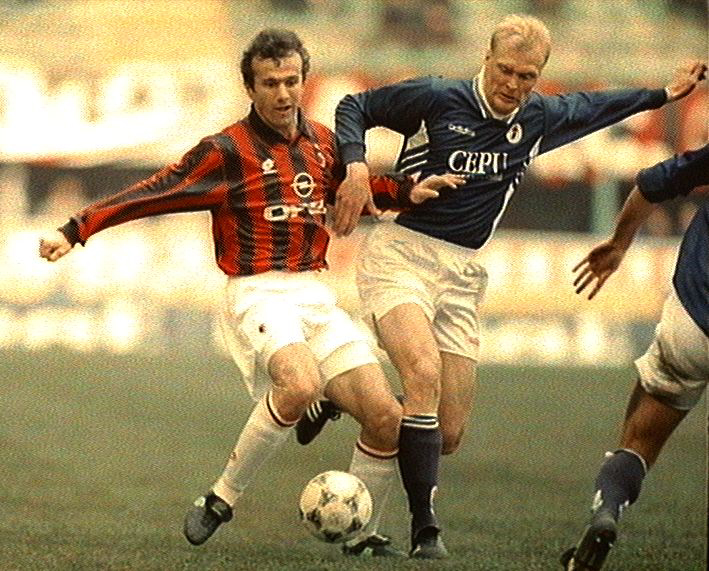
In 1991, the Red Star Belgrade team that had beaten Marseille on penalties in the European Cup final travelled to Old Trafford to contest UEFA's Super Cup with Manchester United. It was a game watched by barely 20,000 supporters, and one which United would win 1-0, but anybody who watched it will remember Dejan Savićević ahead of everything else – including Sir Alex Ferguson, who would recall being mesmerised by the "sensational" Yugoslav in his autobiography.
It doesn't really do his performance justice, but some ropey footage from that game can been seen in the video below (2.30 onwards). Watch what he does to Paul Ince...
Most memorable is Savićević's lob over Andoni Zubizarreta in the 1994 Champions League Final but, wonderful as it was, over time it's been allowed to define him to a new generation. He was one of the most elegant, elusive dribblers the game has ever seen, but also immensely strong on the ball... and above all, dynamic.
Savićević magic at 2:45
Gifted left-footed players weren't rare in England, but they typically had flaws: their expression would come at the cost of consistency, or vice versa. As successful as Savićević's time in Milan was, it's natural to wonder whether Fabio Capello subdued his creative spirit and, consequently, to imagine how he might have glowed in a more offensive league under a less guarded tactician. Adding him to Kevin Keegan's Newcastle team, for instance, would likely have created a spectacular multiplying effect and impact on English football which would still survive to this day.
7. Paolo Montero
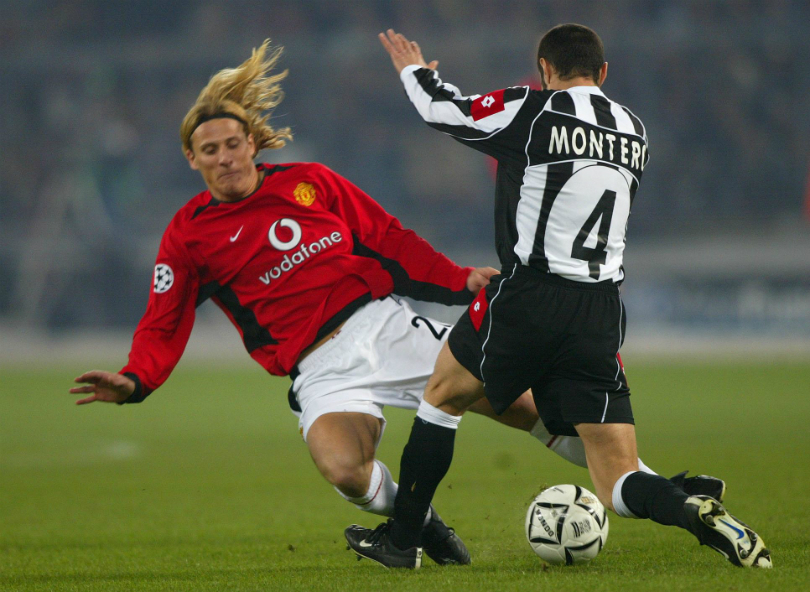
"When I get on a football pitch, my only desire is to win. I'm not thinking about being a role model for my sons or for the fans watching me. I don't think it's true to say that you are disloyal to football if you feign an injury, or tug a shirt or do something else to win the game, as winning games is the purpose of football."
Montero, in conversation with The Guardian's John Carlin in 2003.
"Montero would have been loathed by 19 rival clubs in England, but the twentieth would have been building statues in his honour."
People only remember the Uruguayan's bad side. Not unreasonably, because a record 16 red cards in Serie A during stints with Atalanta and Juventus attests to just how much "bad" there was and, equally, a quick Google of some of his Copa America "highlights" will make your eyes water.
Nevertheless, Montero was so honest about the way he played that there was almost a heroism to his aggression. He certainly took liberties on the pitch, but it's difficult not to admire his 'ends justifying the means' attitude towards football. In fact, it's not dissimilar to a supporter's outlook: a fan doesn't care how a game is won, only that it is. Montero would have been loathed by 19 rival clubs in England, but the 20th would have been building statues in his honour.
8. Juan Román Riquelme
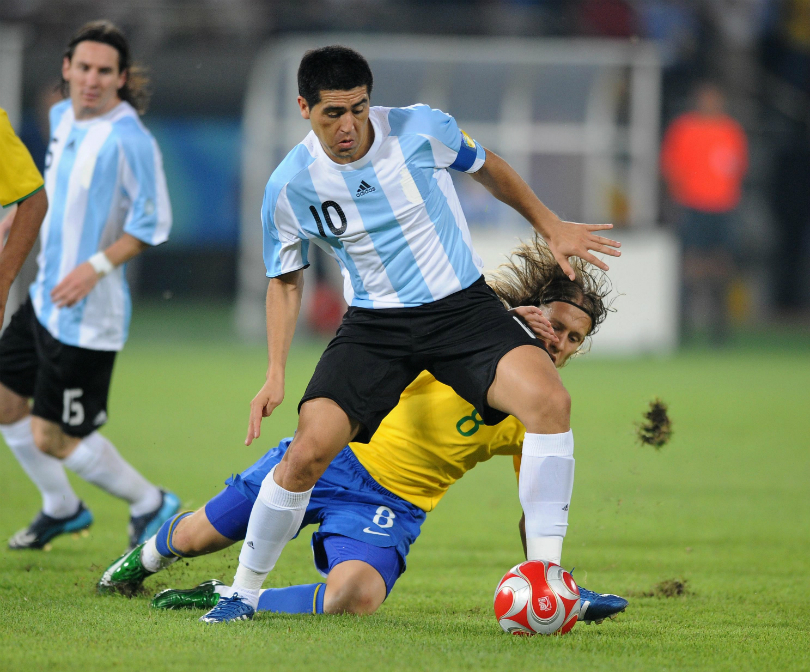
It would be easier to include Roberto Baggio, Rivaldo or Zinedine Zidane on this list, because they were less of a mystery to English supporters. All three enjoyed fabulous careers and each one would almost certainly have conquered the British game.
But the essence of Riquelme was always more opaque. To this day, he retains a rather cultish appeal and there are still those who insist that, at the peak of his powers, he was the finest player in South America. Given who else would be in that conversation circa 2004 to 2007, that's a very bold claim.
His career – particularly the European chapter – had a hazy air which meant that he escaped definitive judgement. While his legacy is embellished by long-range goals and obvious highlights, his greatness really lay in his mood; he played with a calm method and slow feet at a time when dazzlingly quick dribbling and flashing step-overs were becoming the hallmark of the elite. By contrast, he didn't really have a set of distinguishable traits or patented moves. He felt the game around him and reacted to it. That, along with his contrary career choices, gave him an alluring mystique.
To see him on an English pitch, then, would have been to put him under a microscope and examine one of the game's great curiosities.
9. Iván de la Peña
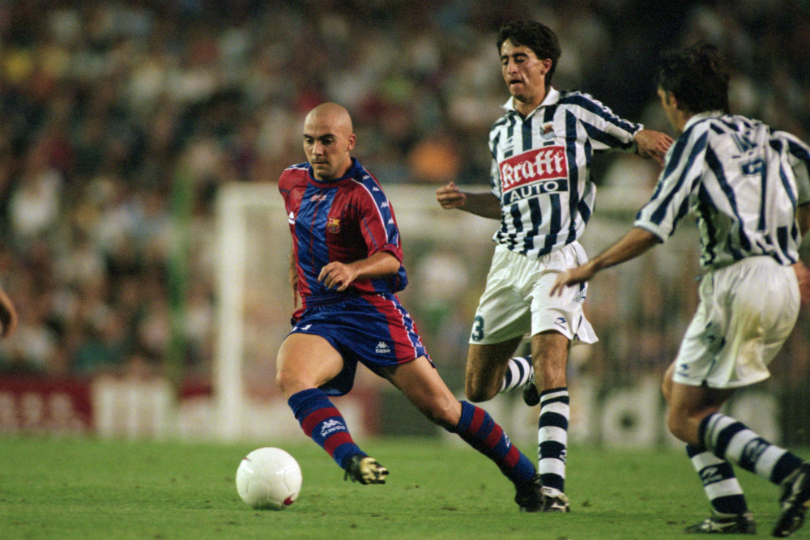
This will take some justifying...
First, the honest points: no, De la Peña wasn't a great athlete and neither did he seem particularly weighed down by defensive responsibility. That he fell out with Johan Cruyff and Louis van Gaal at Barcelona is partly illustrative of that, as ultimately was his career's subsequent trajectory. He was unfulfilled promise and there's really no way of denying that.
However, if he was to have played in 2017, at a time when appreciation for line-cutting distribution is arguably at its apex, far greater focus would be placed on what he could do instead of what he couldn't. And he could pass a football like nobody else: with touch, with disguise, over defences and through them. It may sound like a daft exaggeration given the club's recent history, but he's still one of the best pure distributors Barcelona have ever produced. When he had the ball – all 5ft 6in of him – there was always a vertical pass available.
Whether he would have sufficiently bought into the required conditioning programmes or been physically durable enough for English football is highly debatable, but his raw ingredients were rich enough for someone to have taken a risk. Great careers tend to be circumstantial and rely on a player being managed by the right coach and placed in the right team. De La Peña must bear the responsibility for his failure to become what he should have been but, had his stars aligned properly things could have been very different.
Imagine, for instance, what Arsene Wenger might have been able to make out of him.
10. Alessandro Del Piero
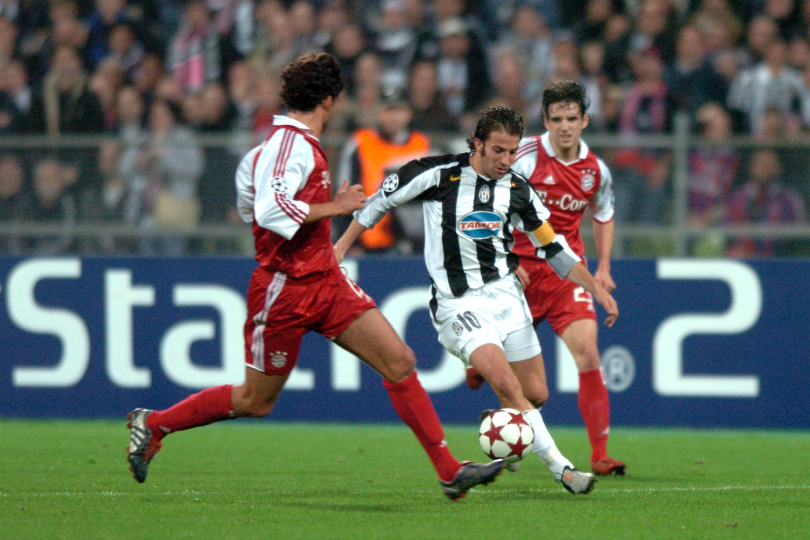
The crown prince of 1990s Italian football. He was never going anywhere and there never seemed the slightest possibility of him leaving Juventus – even after the Calciopoli sanctions were handed down, he famously remained as the club climbed out of Serie B.
There was certainly a before and after point in his career, separated by the knee injury sustained in November 1998. That never really dimmed his appeal, though, because we – those who wanted to see him in England – lusted after the aesthetic he represented as much as anything else. Del Piero was a big bundle of ball-striking, free-kick-bending, artisan craft and his appeal was probably more physical than sporting.
For instance, nobody ever theorised that he could help an English side achieve objectives X or Y, or that he was capable of filling a vacant role in any team; rather they craved the general gloss that he represented. Like watching Prince in concert or seeing Led Zeppelin live, the going and watching would have been more important than what actually happened once you were there.
Seb Stafford-Bloor is a football writer at Tifo Football and member of the Football Writers' Association. He was formerly a regularly columnist for the FourFourTwo website, covering all aspects of the game, including tactical analysis, reaction pieces, longer-term trends and critiquing the increasingly shady business of football's financial side and authorities' decision-making.
